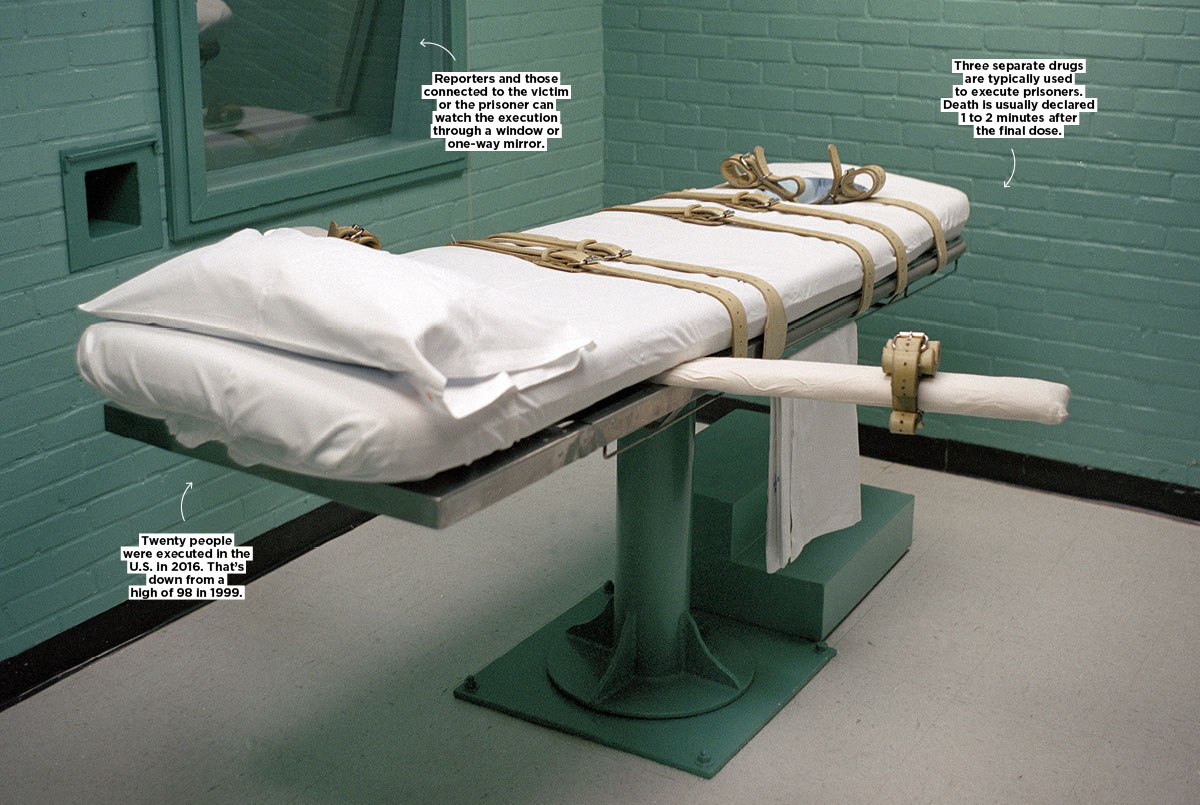Earlier this year, convicted murderer TaiChin Preyor ate his last meal and said his final words. Then he was injected with lethal drugs. Within minutes, his heart stopped.
Preyor was executed in Texas for killing a woman in 2004. His was the 16th execution in the United States this year. In total, more than 1,450 people have been put to death nationwide since 1976.
While that may seem like a lot, the rate of executions has actually dropped in recent years, in part because U.S. Supreme Court rulings have limited the use of the death penalty, also known as capital punishment. The Court has ruled that mentally disabled defendants and people who committed crimes as minors can’t be sentenced to death.
Some people say it’s time for the U.S. to get rid of the death penalty. They argue that it violates the Eighth Amendment to the U.S. Constitution, which prohibits “cruel and unusual” punishment.
Other people, however, argue that the death penalty discourages would-be criminals and ensures that the worst offenders never get the chance to leave prison and commit more crimes.
Should we get rid of the death penalty? Two experts weigh in.


